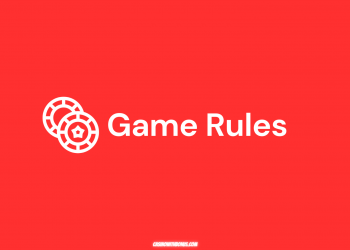- OBJECTIVE OF MAO: Playing all your cards without breaking a set of rules.
- NUMBER OF PLAYERS: 3+
- NUMBER OF CARDS: 52 card deck
- RANK OF CARDS: K, Q, J, 10, 9, 8, 7, 6, 5, 4, 3, 2, A (high),
- TYPE OF GAME: Shedding
- AUDIENCE: All Ages
Contents
Mao: Introduction

Mao (or Mau) refers to the card game of the shedding family. The game is a very engaging one with the aim to get rid of all of the cards and to not break rules that vary by venue. A subset of the Stops family, the Mao game is similar to the card game Uno or Crazy Eights.
Mao: Setup

The game setup is such that the choice of the dealer is random. Dealer shuffles and deals with the player with three cards. The game begins with flipping the top card to form the discard pile. It’s common to notice Playing with multiple decks. The cards have a face value or numerical value.
The traditional experience of Mao is a new player learning some or all of the rules through a trial and error process. New players do not need to stick to the list of rules. Gameplay and rules state that each player holds an initial hand of seven cards.
When the dealing of the cards starts, the remaining cards are in the face-down position in a stack. You can spot the stack in the middle of the table. The target is turning the top card face up from the stack placing next to it. The dealer announces, “this game of Mao has officially begun.”
Related Keywords: Game play, play pile, unspoken rules, wild cards
Mao Card Game Rules
The traditional experience of Mao has a set of rules that vary. However, what is common is that the new player has to learn the rules of the game through trial and error. Through gameplay, the players get to know a lot. These are few basic rules to remember.
Each player in the turn can play a card with the same value or color as the face up card in the center of the game area. If the player cannot do this, he must draw a card and knock on the table.
Mao’s rules vary between different groups. Overall, it is a pesky and annoying game for newbies. Origin is not known for sure. But there is a relation to the German card game Mau Mau.
The winner of the game can make new rules for the next game. This rule cannot contradict existing rules. This rule will not be communicated to other players. You must find it in the game. Also, there are some secret rules which gets disclosed at the end of each session.
Speaking Rules
Yes, you heard it right. Mao involves some speaking rules which are mandatory to be followed by the players. This means that the right thing must be said at the right time. Speaking the wrong thing or speaking at the wrong time usually results in punishment.
- No Talking – This mean unnecessary talks are not allowed in most variants of this game. You should only talk when it is required and approved by the rules. For example, if a player plays “3 of clubs” then he/she must only say “three of clubs”. Any other words or sentence can’t be said.
- Point of order – Each player or only the dealer in some variants can announce a “Point of order” at any time, which is a signal for all players to discard their cards during the discussion.
- Thank you – A player should thank the dealer for every penalty card he receives. Generally, players have a reasonable amount of time to say “thank you” before being penalized. If you do not say “thank you” after receiving the penalty card, you will usually see another penalty card. “Thank you” usually covers any event that requires it.
- Last card – According to rules of some variants, players should announce when they have only one card remaining. The players must say words like “last card”, “one card left”, “zin” or “mao” (just like UNO). Failing to announce the last card can lead to getting penalized.
- End game – “End game”, “Mao”, “Game over” or similar phrases should be used after using the last card. A player who doesn’t say this or say it incorrectly will receive a penalty.
- Swearing – Swearing is not allowed in most of the variants.
- Hail To The Chairman – If you are playing with the King then you should say “Hail to the chairman” or “All hail the chief”, and for queen you should something like “Hail to the chairwoman”, “all hail the chair lady” or “hail the chairman’s wife”. Then other players sometimes have to say “all hail”.
- Have a nice day – “Have a nice day” should be said to the next player after playing the seven card. The person’s name can also be included in the phrase.
- Special card names – In some variations, certain cards are given a name instead of the real name of the card. Player must say these predecided names for such cards during the game play.
Mao: Play

The game begins from the left of the dealer. Then, the cards go passing clockwise. The method is such that each player discards a single card from a hand matching the previous card’s rank. When players don’t get the option to play a card from hand, there’s a need to draw a card from the draw pile.
- When a player asks a question, it’s a must to draw from the stockpile.
- Player explaining any rules means drawing from the stockpile.
- Player acting when it does not turn means drawing from the stockpile.
- Not announcing the name of the game with having one card left means drawing a card from the stockpile.
- Player swearing means drawing from the stockpile.
- Dealers have the right to introduce new rules, one rule per hand. Throwing out old rules si also their right.
- The game keeps becoming engaging until each player gets the chance to deal, passing to the left after each hand.
- When the player plays the last card and says “Mao”, the game is won.
Penalties

Any player who breaks a regulation may be penalised by another player. The steps for imposing a penalty are as follows:
- The player announcing the penalty must formally state what the penalty is when it is announced. For example, if a player has played an invalid card, a “Bad Card” can be penalized.
- The player who announced the penalty takes a face-down card from the draw pile and gives it to the offending player. This is a ticket. The offending player must pick up the card in his hand.
- It is against the rules to issue a wrong or invalid penalty (for example, to punish a player who violates the rules or to punish him for the wrong reason), and you can punish yourself: the penalty in this case is a “Bad Call”.
- The penalty must be implemented within a short period of time after the cheating occurred (ie, you cannot punish someone for a violation of the rules that occurred a certain time ago).
- Penalties cannot be applied retrospectively for things that were lawful at the time of execution during the mao game.
- Also, player can even penalize themselves in case the player breaks any game rules. Though no one is obliged to do this.
- Players can only be punished once per offense (that is, multiple players cannot punish one person for the same attack).






